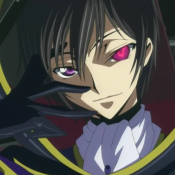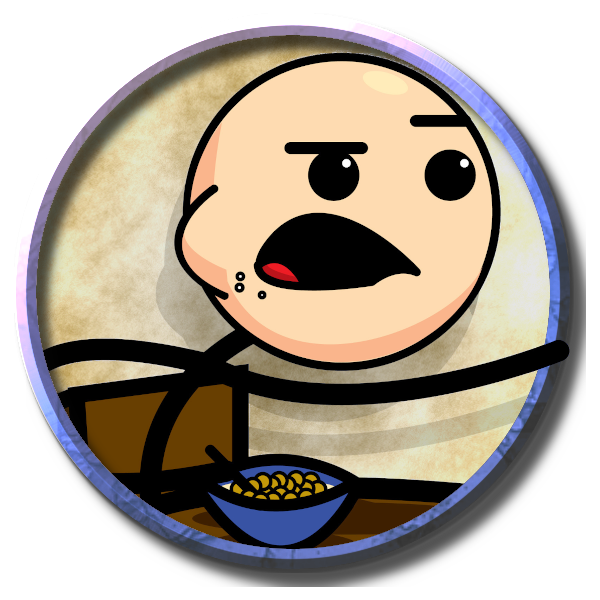Some more freeform systems:
Fate, another great “do all” system
Hillfolk, more like theater impro framework.
Another shoutout for Fate! It’s great
Fate is much more my jam when it comes to “rework for everything” systems. It fits narrative elements with mechanics without being constraining.
Whenever I play PBTA I keep bouncing against the limits of the system because most of them are laser focused on emulating some sort of narrative genre, and often I want more from my characters than to just play out a selected arrangement of tropes. And as a GM I occasionally feature quests that pull from entirely different genres.
I haven’t played Thirsty Sword Lesbians but “a selected arrangement of tropes” hits the nail on the head when it comes to Dungeon World and Blades in the Dark. At least The Sprawl (also PbtA) offered multiclass options and enough lateral advancement that playbooks were more a theme than a rigid dichotomy.
Going back to Fate, this system has become my go-to for “I have a story I want to tell with my party and I just want the rules to, basically, function”. Great for those games where the storytelling matters and the rules almost don’t.
Cypher is another good one if you need linear (or at least, level-like) progression, and an emphasis on finding and using cool loot
I really like Fate and hope to one day find a group that clicks with it. It avoids many of the tropes I’m tired of in D&D.
But in my experience it does need players who are going to do more than phone it in. Passive players can really drag it down. “I dunno I hit him with my sword” kind of works in D&D but not very well in Fate.
Having played Monster of the Week, I think I agree with you about PbtA systems. They’re fun, but I tend to get a little bored with them after a few sessions, especially since I like to make characters who don’t really fit into any of the playbooks. The best fit of a playbook at character creation rarely has more than a few plays I would want to spend experience points on.
I will say, though, that I like the experience system in PbtA games. It does a good job of helping players feel like they accomplished something each session.
Whenever someone talks about fate there’s this moment of fear, because it’s so close in name to FATAL. It’s only for a moment though.
“2 pages of rules” 400-pages FATE rulebook next to me: Am I a joke to you?
I haven’t had a chance to play Hillfolk, only read it years ago… but from what I remember, it also just has great ideas for creating PCs with existing relationships that can port to just about any other system!
Don’t forget that whatever situation you can possibly imagine, Pathfinder has a rule for that! No reworking required as long as you don’t mind stopping the game while you ctrl+F and read the results whenever somebody comes up with a new idea you haven’t prepared for because it’s literally a perfect system that accounts for everything.
Savage Worlds - Pulpy Action-oriented system, tons of setting books, has e.g. an official Pathfinder rulebook. Uses exploding dice balanced out by “bennies” and “wild dice”. Lots of fun IMO, I especially liked when my Shadowrun 2e game converted to the Sprawlrunners Savage Worlds rules, combat and hacking went much faster and was a lot more fun to play. My current multiverse based dimension-hopping campaign is using this system and it’s been a barrel of fun. I feel no need to fudge dice since the players can choose to spend a bennie to re-roll when it matters to them. Running out of bennies is basically like the character running out of luck, so it’s very cinematic in that way.
Freeform Universal - totally free system (as in it’s Creative Commons). No GM dice rolls. Players roll dice only when both success and failure are interesting. Has some similarities with Savage Worlds in terms of player agency and a system similar to bennies.
Basic Roleplaying - Percentile-based d100 system. Used for RuneQuest and Call of Cthulhu. Perhaps the best system for a simulationist approach due to all skills being a number from 0-100 that shows the exact percentage of the time the character will succeed. This means there’s very little mathematical crunch and the extremely straightforward stats always tell you at a glance what your odds are going to be in any roll. I haven’t personally played it but I find this design incredibly elegant.
idc what anyone says, Blades in the Dark is not a PbtA game. It has like 2 things in common with PbtA systems
Also PbtA systems are great for a story focused games, but they’re not exactly tactical and characters tend to be a little static. They focus on story pretty much to the exclusion of everything else. If you want story though go for it, they’re great. I prefer more of a balance personally.
Worlds Without Number focuses on sandbox play and strikes a nice balance with story and combat. Stars Without Number is basically the Sci-fi version. Both are free with premium versions that have a bit of nice optional content, like more powerful options for heroic characters and Star Wars style space magic
I hate to be pedantic (this is a lie), but I’m pretty sure Worlds Without Number is actually the fantasy version of Stars Without Number, since Stars came out first. This doesn’t change your point (also I agree with you) and I’m really not sure that this information is helpful in any way, but here we are.
I know Stars Without Number came first, but I figured that with the context of fantasy games Worlds Without Number made sense to talk about first. Once I brought up Worlds Without Number I felt that Stars Without Number should be mentioned too
Except BitD is an Apocalypse World hack, albeit a more thorough one. John Harper even calls it a PbtA game. I hate to link to stupid bird site, but he says it himself.
And personally, I can see how BitD contains a huge amout of PbtA DNA.
But I dunno, I guess you said you don’t care what anyone says…
There’s pathfinder 2, 13th age, shadow of the demon lord
I almost hope that’s one game, like Pathfinder 2.13.2
If your version numbers don’t look like an IP address, is it really a game system?
They’ve been updating it, haha
For a game with a spell that can make people shit themselves to death, I’ve never had more fun exploring a setting like shadow of the demon lord.
Shadow of the Weird Wizard, too, which is from the creator of Shadow of the Demon Lord, but higher-powered and more classic fantasy rather than grimdark.
13th Age is wonder. A love letter to DnD made by people who worked on DND 3.5 and 4. 13th Age 2nd edition is in the world now but it’s all going to be backwards compatible so there is no reason to not dive in now for anyone interested.
GURPS. It has a little bit of a learning curve and some problems with outdated terminology but it is a great system.
Gurps is hands-down my favorite system, but it’s reputation is so terrible I’ve only once convinced a group of players to play it, and only for one session
If you’re really looking for not-catch-all systems you should check out ADRPG (Amber Diceless RPG) I haven’t played it properly but I’ve read the books it’s based on and read through the rule book and it looks really cool and unique. Another unique one is Microscope. I’ve also not played it but read the rule book and it comes highly recommended. It’s a completely different kind of tabletop game, one can almost not even call it an RPG, but there are roleplaying elements. I’d recommend checking it out.
If you’re not really looking, well, there you have it anyways I guess. Feel free to ignore.
If you’re really looking for not-catch-all systems
I’m not, but don’t let that get in your way of reccomending good stuff that you enjoy playing. There’s nothing wrong with taking a free opportunity to talk about games you like.
Thanks! 😊
Microscope is used by a group to collaboratively create the world a game will take place in, right?
Yeah sort of. They create a timeline/history together. There are surely ways to then play games or write stories or what have you within the world that is created but mainly it’s creating a history of a place that sort of gets created as you go.
Honestly, I don’t mind people who hack 5e as long as they’re upfront about it (as in, don’t invite you for Cyberpunk game only to reveal it’s a 5e Cyberpunk hack at character creation). This is a way some people express their creativity. It’s kinda like how despite there being other games at the time, hundreds if not thousands game devs started from designing levels for Doom or hacking Doom or converting Doom to new platform. It’s now happenning with Skyrim.
A lot of RPGs started as d&d hacks - Runequest, which lead to Call of Cthulhu, started as “what if we only ruled d10’s in d&d”. Tunnels & Trolls exists because creator read d&d book and decided to hack the rules to be more for his liking. Warhammer exists because Games Workshop needed a replacement game when losing rights to publish d&d in Britain. Pathfinder is a similiar story, it was just d&d 3.55 (and sucked just like 3.5) before 2nd Edition.
This is the second time I hear about Thirsty Sword Lesbians here and I am still afraid to google it.
Is this serious or is it some sort of joke system?
-
It’s a game about lesbian and queer romance and swordplay
-
It’s a hit among the LGBTQ+ crowd, and specifically the lesbian, trans, and queer audience members
For context, when it comes to lesbian and queer romance, the ‘sex’ part of sexuality is pretty minimal compared to everything else. IIRC there’s very little in the way of actual sexual content in the rulebook. Au contraire, everything is heavily drenched in mutual consent, positive experience, and, well, the cute-gay-shit side of being gay.
Do you know any good actual plays? I’m only a straight ally, but I’ll be damned if I’m not a sucker for cute as fuck queer love stories.
Hm, maybe the Honor of Gayskull?
Excellent! I’ll give it a watch/listen! Thanks!
-
It’s not as bad as you’re thinking. It’s very much in the modern style of powered by the apocalypse games, but instead of investigate then combat, it’s romance then combat. It’s, perhaps obviously targeted at the LGBTQ community, and that shines through in the art and mechanics, with non LGBTQ relationships being almost an after thought.
If I had to describe it as simply as possible, I would probably tell you to watch She-ra and the princesses of power.
Sounds like an old VHS fantasy sword and board themed porn movie my uncle might have own lol
Your uncle sounds like a cool dude
So you’re saying I should find a system I like and use the mechanics for whatever setting i want to play? Hmmm…
Eclipse Phase, White Wolf games, Mutants and Masterminds, Star Wars: Edge of the Empire…
The D20 based Cypher System game Numenera is what I run and have the most fun in. Takes place about 1 billion years in the future on the Ninth World, what future humanity calls the new Pangea continent that once hosted 8 previous super civilizations that rose and fell.
Character creation is fun, based on the formula ‘I am a [descriptor] [type] that [focus]’ with what descriptor you give your character giving appropriate bonuses, like Charming giving skills in interaction and starting off with an important contact you charmed before the game. Type is class, like a Nano that can control some of the latent nanites in the air. Focus is something very unique, something that can start an adventure itself, like Talks to Machines or Murders.
Health isn’t nebulous HP like it is in dnd, instead split into three pools ‘speed’ ‘might’ and ‘intellect’ with some abilities having pool costs, or some strenuous actions depleting it. I like the feeling of weakening it can give after a day of adventure.
Even if you’re not into it I’d get the bestiaries at least, best I’ve seen so far and easy enough to slot into dnd.
i’ve made one if u want it
Did I miss something or has no one even mentioned any One Roll Engine games?
I mean I love me some Fate, and PbtA is great and all. But where are the Better Angels? The Monsters and Other Childish Things? The Dirty Worlds?










